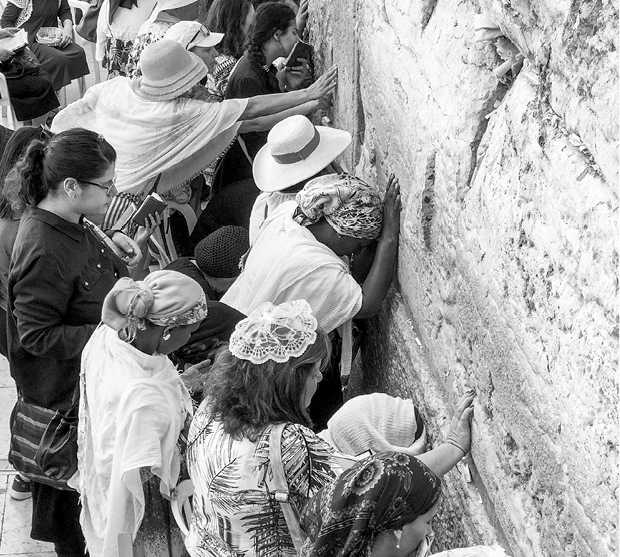Israel Chutzpah

Wailing Wall, Jerusalem, Israel.
If you want to understand why chutpzah is so intrinsic a part of Israel, start with the name itself. Its meaning—“he that fights with God”—tells you everything you need to know. What greater chutzpah could there be than picking a fight with a divine power? (The fact that many Israelis thumb their nose at organized religion only reinforces the impression.)
Chutzpah is a value that captures both admirable and less attractive characteristics. It is about the determination and inner strength to do things even when people tell you it can’t be done. And it’s just as much about stubbornness, bloody-mindedness, and even rudeness. They are two sides of the same coin.
In its original Yiddish meaning chutzpah is more about bad manners and arrogance than audacity we should admire. Today, where mold- and rule-breakers are generally more celebrated than shunned, chutzpah has taken on a more positive meaning. It is about the relentless pursuit of things that shouldn’t be achievable, but which can be made so by sheer force of will. It’s about the unshakable belief in your ideas and ability to fulfill them. Start-ups seeking to overturn much bigger, more established rivals have chutzpah; political outsiders railing against the establishment have chutzpah. In a world increasingly defined against the status quo and in favor of disrupters, chutzpah has moved from being a character trait to chide to a behavior that is celebrated and imitated.
And if you are looking for the best example of chutzpah in action, look no further than Israel. Chutzpah is in every pore of Israel, in its history, present, and the behavior of its people. It took chutzpah to create the modern state of Israel in the first place, and for it to survive for over seventy years in the teeth of violent opposition both near and far. It takes chutzpah for a country that is 60 percent desert to be home to such thriving agriculture. It takes chutzpah to be a country as small as Israel to be one of the most innovative, entrepreneurial economies in the world.
I had met plenty of Israelis before ever setting foot in the country, and had known the vast majority as highly motivated and extremely successful people. But it is only when you actually experience Israel, see at first hand how such a small country can achieve so much, that you understand the real scale of its success and the true meaning of chutzpah. At first I thought the word just meant that you really go for it. But it was sitting around Shabbat and seder tables in Israel that helped me understand there is a deeper meaning and motivation. The stories that are told and the history that is recited—of suffering, struggle against the odds, and survival—are the real cornerstone of chutzpah. It is through the regular, ritual remembrance of what has gone before that the greatest strength is derived. If we can survive this, we can survive anything. And not just survive, but thrive. This connection to the past is what grounds the chutzpah that defines Israel today in the millennia of experiences that have brought its people to this point. The chutzpah that is helping Israeli companies invent the future is rooted in the chutzpah that allowed their country to be created and survive in the first place. It is about beating the odds and finding the inner strength to triumph, whatever the circumstances. Israel is a nation whose very existence is an act of chutzpah.
Whether the problems we as individuals face are large or small, they all become more manageable, more conquerable, if we adopt—with due moderation and sensitivity—the art of of chutzpah.